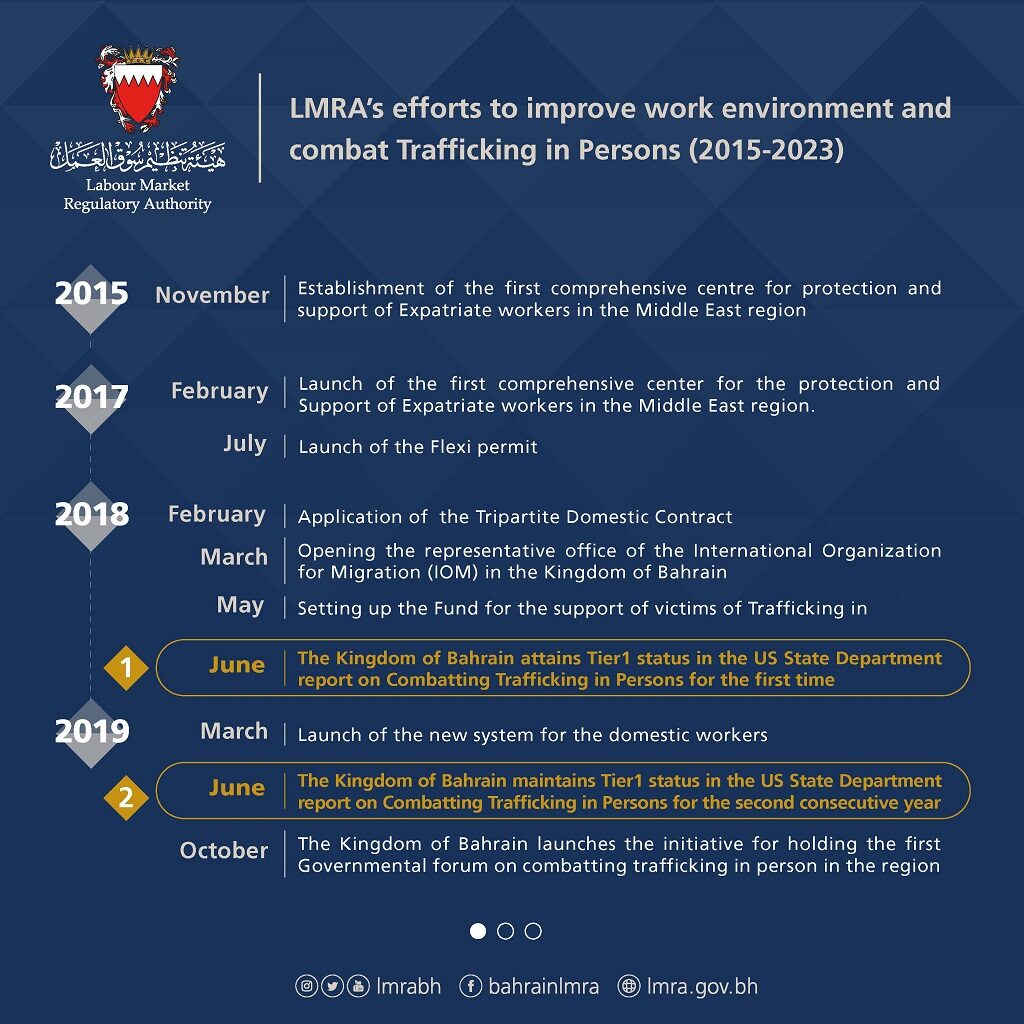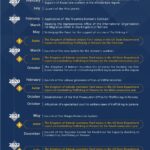
The Kingdom of Bahrain has maintained its pioneering position in addressing and combatting the crime of trafficking in persons, achieving the “Tier 1” status for the sixth consecutive year in the US Department of State’s 2023 Trafficking in Persons’ (TIP) Report, which is the highest annual international classification in this field.
This achievement reflects the Kingdom’s commitment to upholding and protecting individual rights, through strengthening institutions and accountability.
The government of Bahrain has established an integrated institutional structure to maintain solid legislative and procedural ground that provides prevention, protection, justice and fairness for all parties to work without discrimination. The Kingdom continues to develop the measures and procedures based on respecting civil, economic, and religious rights and social freedoms in accordance with the provisions of the constitutional and legal frameworks and international conventions.
The report highlighted the Kingdom’s institutionalization of efforts in combatting trafficking in persons, facilitating prevention and protection measures, as well as expanding measures that ensure justice and fairness for victims and hold the perpetrators involved in crimes of trafficking in persons and forced labour to account. In addition to providing support and assistance to victims, in order to overcome the psychological and social repercussions of this crime.
The report shed light on the steps taken by the Kingdom to promote justice, including the establishment of the first public prosecution office specialized in trafficking in persons, and the allocation of a court to adjudicate crimes referred by the prosecution, to expedite the legal proceedings in the investigation and adjudication by specialized judicial staff, in addition to establishing victims assistance funds.
The US Department of State outlined the Kingdom’s efforts to initiate the establishment of an office for the Protection of Witnesses and Victims of Trafficking in Persons , which acts as a point of contact with the Public Prosecution, by looking into, and submitting requests to take the necessary measures to protect victims and witnesses in cases of trafficking in persons at all stages of the case, with the aim to support them to recover from the psychological and financial repercussions, as well as proposing measures and procedures required to be taken to protect them.
The report pointed out the Kingdom’s strives to address illegal practices in the labour market within legal frameworks, through introducing the Labor Registration Program, which is based on a partnership between the public and private sectors. It also highlighted the initiative to provide administrative assistance in filing civil lawsuits for workers registered in the Approved Labour Registration Centres by the Labour Market Regulatory Authority (LMRA), which comes as a continuation of the initiative to provide administrative assistance to workers in filing labour lawsuits through an electronic system, in addition to providing all the information required, starting with filing the case until issuing the verdict.
The report also showcased Bahrain’s efforts to raise awareness in combatting trafficking in persons on national and regional levels, through conducting training courses and programs by the Regional Centre of Excellence and Capacity Building for Combatting Trafficking in Persons, which aims to identify the crime and all of its forms, as well as raise the capabilities of the frontliners, especially in police stations, hospitals and health centers, to identify victims or potential victims, in addition to qualify and train trainers and experts in this field.
The US Department of State report also touched on developing a number of preventive measures that enhance the protection of workers and prevent forced labour and other forms of trafficking in persons, including the Wage Protection System, which obliges all employers to pay wages through an electronic system that enables the LMRA to follow up on companies’ commitment to pay wages on time, to enhance transparency levels and contributes to reducing labour disputes related to wages and speeding up their resolution.



